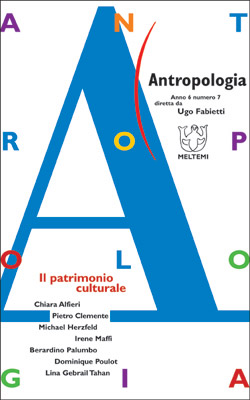Il vento del Sud-Est. Regionalismo, neosicilianismo e politiche del patrimonio nella Sicilia di inizio millennio
DOI:
https://doi.org/10.14672/ada2006139%25pParole chiave:
Patrimonio culturale, Neosicilianismo, Lista del Patrimonio Mondiale dell'UNESCO , Politiche patrimoniali, SiciliaAbstract
Questo saggio esplora le dinamiche sociopolitiche innescate dall'inserimento di otto comuni della Sicilia sud-orientale nella Lista del Patrimonio Mondiale dell'UNESCO (WHL). Lo studio esamina l'interazione tra la classificazione burocratica internazionale, le politiche del patrimonio, le retoriche identitarie e il panorama politico a livello locale, regionale e nazionale. Lo studio analizza il modo in cui le politiche dell'UNESCO sul patrimonio danno forma alla costruzione dell'identità e all'esposizione all'interno di un quadro istituzionale globale e il modo in cui queste dinamiche di potere sono percepite e manipolate a livello locale. Utilizzando dati etnografici provenienti da contesti locali, la ricerca evidenzia come le pratiche e gli oggetti locali facciano parte di una più ampia poetica sociale, rivelando una continua sovversione degli assi temporali. Lo studio utilizza modelli teorici dell'antropologia nordamericana contemporanea, in particolare il concetto di “intimità culturale” di Michael Herzfeld, per analizzare questi processi.
##submission.downloads##
Pubblicato
Fascicolo
Sezione
Licenza
Copyright (c) 2013 Berardino Palumbo

TQuesto lavoro è fornito con la licenza Creative Commons Attribuzione 4.0 Internazionale.
- Gli autori mantengono i diritti sulla loro opera e cedono alla rivista il diritto di prima pubblicazione dell'opera, licenziata sotto una Licenza Creative Commons - Attribuzione che permette ad altri di condividere l'opera indicando la paternità intellettuale e la prima pubblicazione su questa rivista.
- Gli autori possono aderire ad altri accordi di licenza non esclusiva per la distribuzione della versione dell'opera pubblicata (es. depositarla in un archivio istituzionale o pubblicarla in una monografia), a patto di indicare che la prima pubblicazione è avvenuta su questa rivista.




